A riot of scents at Delhi's oldest perfumery
- Published
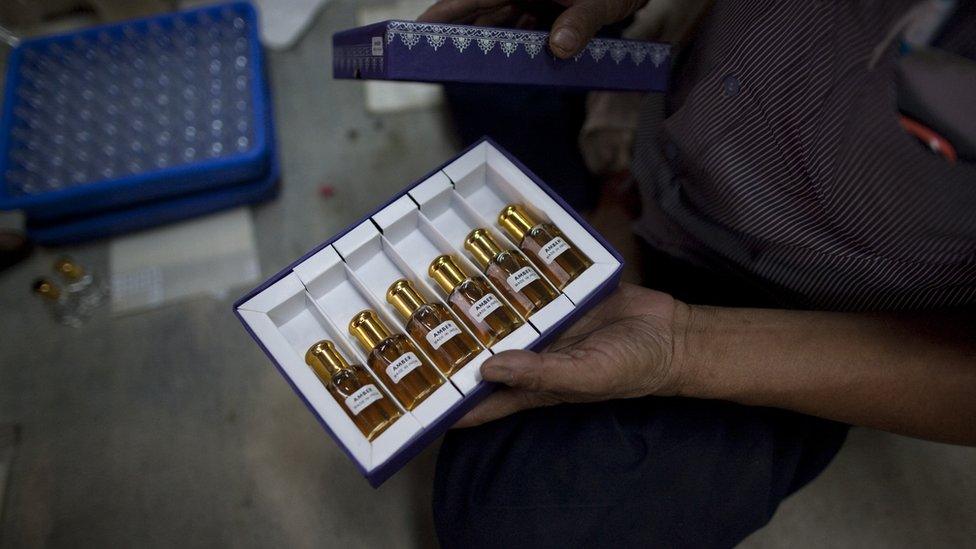
Perfumes made from oils extracted from roses and jasmine are sold at the shop
Delhi's oldest perfumery is steeped in history and is a riot of scents. It also has a long list of celebrity clients, as Anasuya Basu found out during a visit to the shop.
A mellow morning sun with a nip in the air was reason enough for a deep breath in the congested serpentine lanes of old Delhi.
I was on my way to Gulab Singh Johri Mal, the Indian capital's oldest perfumery.
This quaint nearly 200-year-old shop is tucked away in a crowded lane in Dariba Kalan, which contains Asia's largest jewellery market.
Every shop here claims a lineage dating back to the 19C preceding the 1857 rebellion against the British rule in India.
The scent shop was built in 1816 and is known all over India for its perfumes called ittars, extracted from fresh flowers and sandalwood oil.
Loyal customers
Vehicles, people, cycle rickshaws jostled for space in the overcrowded lane as I tried to get to the ittarwalla, a term for the perfumery in the local language.
Few yards into the dingy lane, I picked up the refreshing fragrance of rose.
When I asked for directions, jewellers chirply advised me that the fragrance of ruh-e-gulab (rose perfume) - the "queen of ittars" - would lead me to the famed perfumery.
A wall clock made in 1852 adds to the charm of the shop which is now managed by Praful Gundhi and his brothers, seventh generation of the city's most famous family of perfumers.
Mr Gundhi has many anecdotes to share about how their ancestral work of selling perfumes began two centuries ago.
According to him, Gulab Singh, the original owner, would showcase his best ittars in the court of the Mughal emperor Akbar Shah II and a large section of the nobility were his loyal customers.
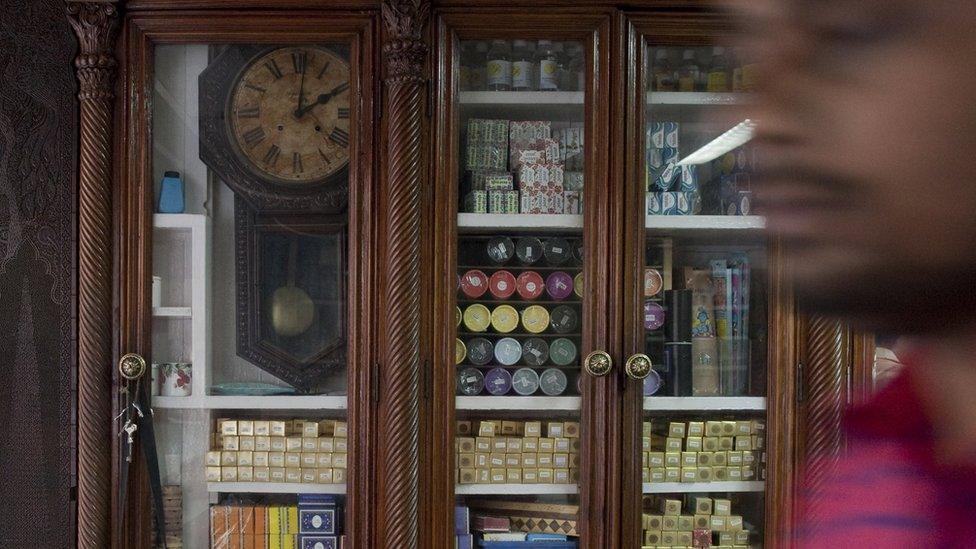
A wall clock made in 1852 adds to the charm of shop
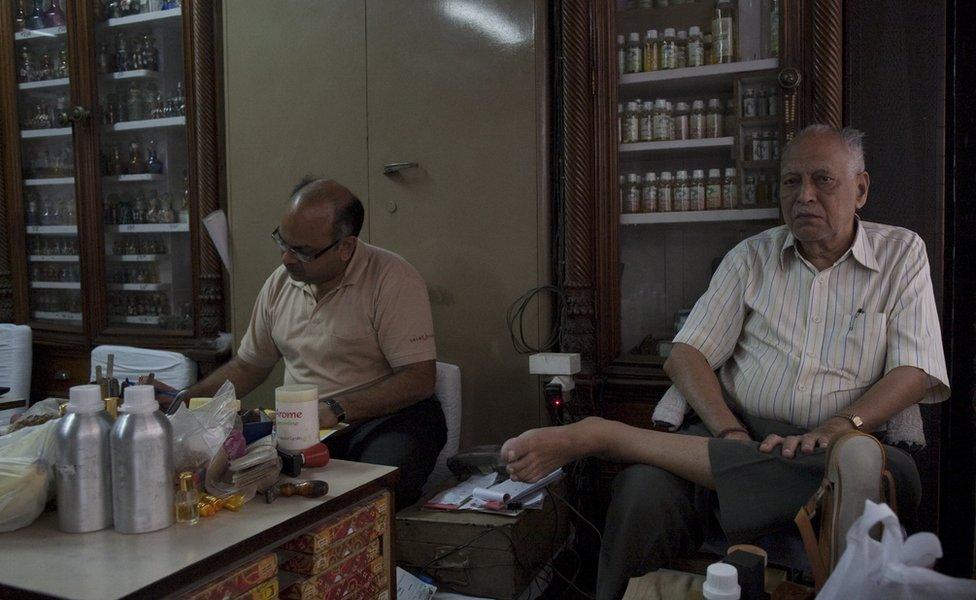
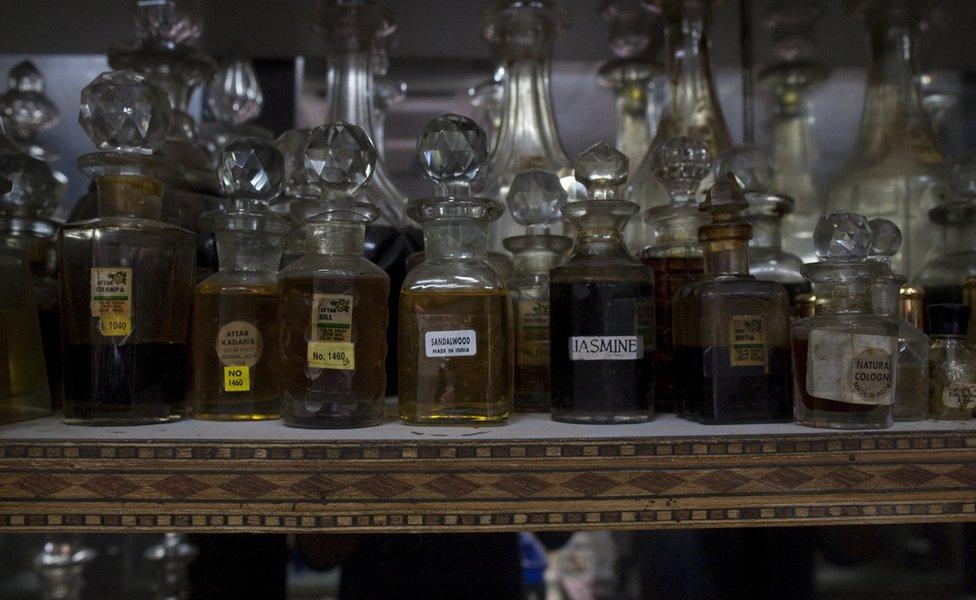
Belgian cut glass decanters with different kinds of perfumes are placed in cupboards
Belgian cut glass decanters with different kinds of perfumes were sent to the zenana - part of the house reserved for the women of the household - as the Mughal queens and princesses were not permitted to come to the bazaar.
One can still see some of those decanters and finely-cut glass bottles neatly placed in teak cupboards.
The Gundhis have over a dozen varieties of perfumes made from oils extracted from specially grown rose and two types of jasmine.
Strict quality control is necessary to preserve the lore of the ancient brand that hasn't lost patrons.
'Craftsmanship'
The Gundhis have two distilleries: one in the rose growing area in Uttar Pradesh makes the famous Ruh-e-Gulab perfume - pure rose oil extracted with care by distillers.
The most expensive ittar - a 10 gram bottle of Ruh-e-Gulab - costs 18,000 rupees ($276; £180); the cheapest - a variant of the rose perfume - comes for 1,000 rupees.
"Making quality ittars is a study in craftsmanship. The flowers must be plucked at the crack of dawn and processed before the sun rises as the fragrance wanes with the rise of the sun. We have distilleries amidst flower fields," says Mr Gundhi.
With celebrity clients like the Oscar-winning composer AR Rahman, former prime minister Indira Gandhi and former Pakistan president General Pervez Musharraf and Delhi's elites as patrons, the reputation of this shop has travelled far and wide.
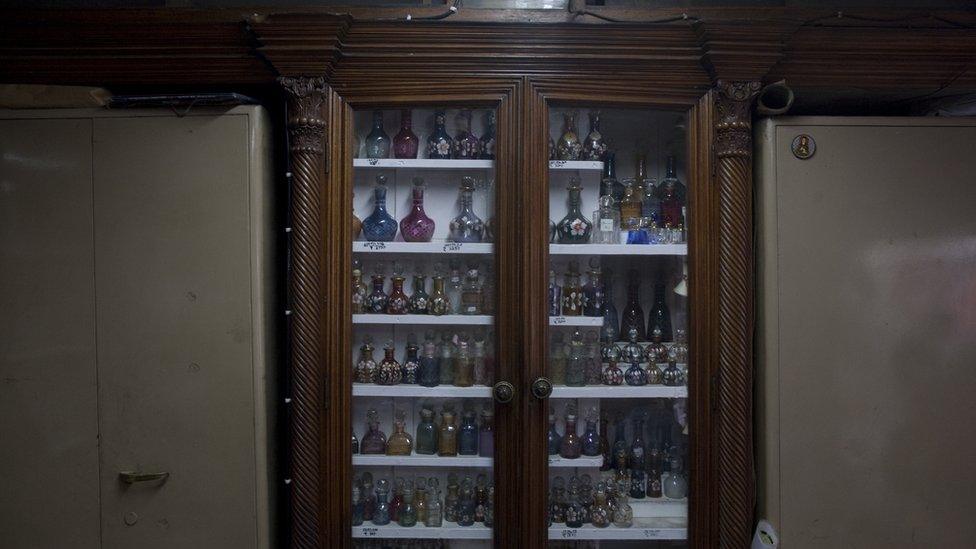
A dozen varieties of perfumes are sold at the shop
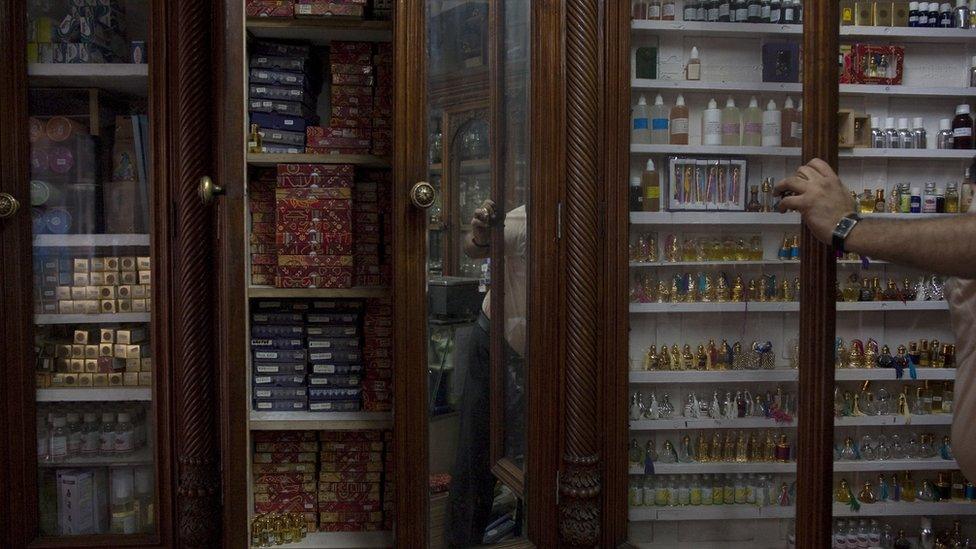
When Gen Musharraf visited India in 2009, he bought a few bottles of the ittar derived from the "fragrance of the wet earth after the first rain of the summer" for his mother who was a resident of old Delhi before India was partitioned in 1947.
"Not many people know that there are special fragrances for summer and winter months based on the availability of seasonal flowers and I take my guests to Gulab Singh's shop which is such a discovery for tourists," says Sohail Hashmi, academic, writer and filmmaker.
"Ittars made here are pure and last longer than alcohol-based perfumes."
With the price of sandalwood oil rising, perfumeries are opting for synthetic versions of the oil.
"Our perfumes which use pure sandalwood oil are expensive but we also make several combinations using synthetic versions as per the demand of customers. But we like to stick to traditional ways of making ittar as it sets us apart from scores of perfumers in the country," said Mr Gundhi.
The perfumery has hired 50 people to work in the distilleries and the shop in Delhi. It's the skill of these people that sustains the fragrance that first spread its aroma some two centuries ago.
"When Gulab Singh started his perfumery little did he know that it'll run for 200 years and be known all over the country. We have not compromised on the quality of ittars and are training the next generation to carry forward the legacy hopefully for another couple of centuries," says Mr Gundhi.